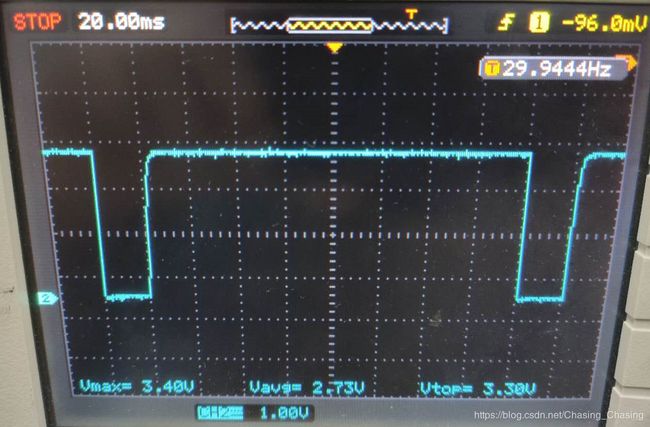- Linux驱动学习--网络设备驱动架构介绍及底层源码分析
文艺小少年
网络设备驱动linux驱动程序net
目录一、引言二、网络设备驱动架构介绍三、网络设备框架常用接口介绍------>网络协议接口层------>sk_buff------>sk_buff的操作函数------>网络设备接口层------>net_device相关介绍------>设备驱动接口层四、驱动源码分析------>初始化源码分析------>接收数据源码分析------>发送数据源码分析------>超时函数源码分析五、wif
- Linux驱动学习之input子系统
吾有三德
Linux驱动学习学习
简介input子系统就是管理输入的子系统,和pinctrl、gpio子系统一样,都是Linux内核针对某一类设备而创建的框架。按键、鼠标、键盘、触摸屏等都属于输入设备,linux内核为此专门做了一个叫做input子系统的框架来处理输入事件。输入设备本质上还是字符设备,只是在此基础上套上了input框架,用户只需要负责上报输入事件,比如按键值、坐标等信息。对于驱动编写者而言不需要去关心应用层的事情,
- Linux驱动学习之内核接口和多节点设备
吾有三德
Linux驱动学习学习
四盏灯:原则上我们想要实现流水灯!需要怎么做?一个驱动->生成一个设备文件!一个设备文件怎么控制四个LED灯?你有两种方法:1:你写四个驱动你就能生成四个LED灯!四个驱动有什么特点没除了引脚不一样其他代码几乎都一样!2:你写一个驱动却生成四个设备文件!一驱多设前置open和relase参数一样,如果说多个设备用一套open,close,我们该怎么确定是哪个灯呢,我们可以想到stm32hal库串口
- Linux驱动学习之点灯(五,设备树没用平台设备总线)
吾有三德
Linux驱动学习学习
创建一个设备树节点/{led:led{compatible="led";led_pin=;status="okay";}}OF函数介绍查找属性of_gpio_named_countof_gpio_named_count函数用于获取设备树某个属性里面定义了几个GPIO信息,要注意的是空的GPIO信息也会被统计到。函数原型如下intof_gpio_named_count(structdevice_no
- Linux驱动学习13(初步认识ioremap)
iteye_11495
操作系统嵌入式
几乎每一种外设都是通过读写设备上的寄存器来进行的,通常包括控制寄存器、状态寄存器和数据寄存器三大类,外设的寄存器通常被连续地编址。根据CPU体系结构的不同,CPU对IO端口的编址方式有两种:(1)I/O映射方式(I/O-mapped)典型地,如X86处理器为外设专门实现了一个单独的地址空间,称为"I/O地址空间"或者"I/O端口空间",CPU通过专门的I/O指令(如X86的IN和OUT指令)来访问
- Linux驱动学习—中断
suifen_
linux学习运维
1、中断基础概念1.1什么是中断CPU在正常运行期间,由外部或者内部引起的时间,让CPU停下当前正在运行的程序,转而去执行触发他的中断所对应的程序,这就是中断。响应中断的过程:中断请求中断响应保护现场中断处理恢复现场中断返回如果不响应中断,就是中断屏蔽。1.2什么是中断上下文,为什么会有中断上下文?中断的存在可以极大的提高CPU的运行效率,但是中断会打断内核进程中的正常调度和运行,所以为保证系统实
- STM32MP157/linux驱动学习记录
tao_sc
linux学习stm32
1.uboot烧录2.linux安装nfs服务sudoapt-getinstallnfs-kernel-serverrpcbind安装nfs服务在用户根目录下创建一个名为“linux”的文件夹,以后所有的东西都放到这个“linux”文件夹里面,在“linux”文件夹里面新建一个名为“nfs”的文件夹,更改777权限。打开nfs配置文件:sudovi/etc/exports在最后加上:/home/t
- Linux驱动学习—ioctl接口
suifen_
linux学习驱动开发c语言
1、unlock_ioctl和ioctl有什么区别?kernel2.6.36中已经完全删除了structfile_operations中的ioctl函数指针,取而代之的是unlocked_ioctl。ioctl是老的内核版本中的驱动API,unlock_ioctl是当下常用的驱动API。unlocked_ioctl实际上取代了用了很久的ioctl,主要的改进就是不再需要上大内核锁(BKL)(调用之
- Linux驱动学习—平台总线模型
suifen_
linux学习驱动开发c语言运维
1、平台总线模型介绍①什么是平台总线模型?平台总线模型也叫platform总线模型。是Linux内核虚拟出来的一条总线,不是真实的导线。平台总线模型就是把原来的驱动C文件给分成两个C文件,一个是device.c,一个是driver.c把稳定不变的放在driver.c里面,需要变得放在devic.c里面。②为什么会有平台总线模型?(1)可以提高代码的重用性(2)建设重复性代码③怎么编写以平台总线模型
- Linux驱动学习—pinctl和gpio子系统
suifen_
linux学习驱动开发
1、pinctl和gpio子系统(一)1.1pinctrl子系统主要工作内容获取设备树中pin信息,管理系统中所有的可以控制的pin,在系统初始化的时候,枚举所有可以控制的pin,并标识这些pin。根据获取到的pin信息来设置pin的复用功能,对于SOC而言,其引脚除了配置成普通的GPIO之外,若干个引脚还可以组成一个pingroup,形成特定的功能。根据获取到的pin信息来设置pin的电气特性,
- Linux驱动学习—设备树及设备树下的platform总线
suifen_
linux驱动开发c语言运维
1、什么是设备树?设备树是一种描述硬件资源的数据结构。他通过bootloader将硬件资源传给内核,使得内核和硬件资源描述相对独立。2、设备树的由来2.1平台总线的由来要想了解为什么会有设备树,设备树是怎么来的,我们就要先来回顾以下在没有设备树之前我们是怎么来写一个驱动程序的。以字符设备驱动代码框架为例,我们一起一起来回顾下。任何的设备驱动的编写,Linux已经为我们打好了框架,我们只需要做完形填
- linux驱动学习:从上电到启动 一
阿荻在肝了
知识汇总学习总结linux学习驱动开发
1从上电到bootloaderromboot:初始化硬件:cpu上电后,首先从片内rom中执行指令,即片内boot程序加载引导程序:ROMBootloader从可访问的存储介质(如闪存、SD卡等)中读取引导程序,并将其加载到正确的内存位置。引导程序负责进一步的系统初始化和加载操作系统。(读取外部固件到片内ram,最后跳转到片内ram执行新的用户boot程序)2bootloader分类及其作用GRU
- Linux驱动学习--android声卡之蓝牙‘sco over hci‘ 通话的使用配置(基于tinyalsa库)
文艺小少年
蓝牙SCOlinuxandroid驱动
目录一、引言二、scooverhci------>HCI接口------>驱动中的’scooverhci’开关三、声卡中PCM的使用配置(基于tinyalsa库、tiny工具)------>tiny工具的使用------>tinycap、tinyplay源码分析------>tinyalsa库源码分析---------------->pcm_open---------------->pcm_rea
- linux下触摸屏应用编程
xqhrs232
原文地址::http://blog.163.com/jk_new/blog/static/9954856220081112547867/相关文章1、linux-2.6.32在mini2440开发板上移植----添加触摸屏驱动程序----http://www.linuxidc.com/Linux/2013-04/82383p9.htm2、Linux驱动学习笔记之触摸屏驱动----http://blo
- Linux4个led灯循环点亮程序,linux驱动学习笔记---点亮一个led灯(三)
天海咲
led硬件地址映射和操作1.点亮s5pv210的led灯首先需要知道其所用引脚,以及引脚所对应的状态寄存器与数据寄存器根据外围电路图可知两个灯所用的引脚分别为gpc0_3与gpc0_4,找到其引脚所对应的寄存器状态寄存器5位的数据寄存器在驱动模块加载中做地址映射,映射的地址为8个字节64位(包括状态寄存器与数据寄存器)gpc0con+1(一个寄存器为4个字节32位,表示指向下一个寄存器0xE020
- Linux驱动学习笔记:MISC驱动
長樂yq
学习笔记linuxarm驱动开发
MISC驱动学习笔记1、MISC驱动:又称杂项设备驱动,是三大设备驱动框架中字符设备驱动的一种。MISC设备驱动的主设备号是相同的,均为10。2、注册杂项设备驱动的流程(1)填充miscdevice这个结构体(定义在文件include/linux/miscdevice.h);(2)填充file_operations这个结构体(定义在文件include/linux/fs.h);(3)注册杂项设备并生
- linux驱动学习加强版-7(平台虚拟总线的引入)
永不秃头的程序员
linux驱动学习(兼容安卓)linux驱动专栏linux学习java
文章目录一、为什么要引入平台虚拟总线二、平台虚拟总线架构三、使用platform框架去写一个驱动一、为什么要引入平台虚拟总线Linuxplatformdriver机制和传统的device_driver机制相比,一个十分明显的优势在于platform机制将本身的资源注册进内核,由内核统一管理,在驱动程序中使用这些资源时通过platform_device提供的标准接口进行申请并使用。这样提高了驱动和资
- 三种Linux字符设备驱动写法-2:总线设备驱动框架
闪耀大叔
嵌入式Linux入门嵌入式单片机物联网armlinux
这篇文章中介绍Linux总线设备驱动框架,重点是体会整个框架,特别是感受一下分离的思想和抽象的方法,很多结构体中的成员不必深究到底如何实现或者有何作用,我将在今后的文章中深入探讨。参考资料:嵌入式Linux驱动学习-6.platform总线设备驱动模型嵌入式Linux驱动学习-5.驱动的分层分离思想1.分离思想回顾第一篇,最简单的驱动框架:如下,在驱动程序中直接把资源(IO引脚)写死staticu
- linux驱动学习——自动创建设备节点
cike626
linux驱动linux
文章目录7.1、udev7.2、函数说明7.3、示例代码7.1、udevlinux传统上使用静态设备创建方法,因此大量设备节点在/dev下创建(有时上千个),而不管相应的硬件设备是否真正存在。采用udev的方法,只有被内核监测到的设备,才会去为它们创建设备节点。当插入新设备——加入驱动模块——在sysfs上注册新的数据后,udev会创建新的设备节点。linux系统中/sys/devices/vir
- Linux驱动学习(4-字符设备-自动创建字符设备并读写)
DevilBox
内核Linuxlinux驱动框架linux
上一节我们主要讲解了手动创建字符设备节点并访问,但是感觉太过于麻烦,因此,我们这一节主要讲解如何自动创建字符设备并进行读写操作,以及讲解编写字符设备驱动的框架不过在此之前,我们先不上代码,先了解一下基本的概念。1、设备号dev_t设备号为设备驱动模块程序在Linux系统中唯一识别号。其为32bits的无符号整数,一个设备号分成主设备号和次设备号两部分:(Linux2.6版本的设备号)主号12bit
- linux驱动学习笔记 led的驱动程序与驱动测试程序
天堂陌客
Linux笔记linux驱动
前言正在学习linux的驱动编写与编译,使用的是韦东山老师的jz2440开发板,下面将对视频配套源码下的驱动代码(\JZ2440V3\drivers_and_test\leds)进行解析归纳。先学习将要用到的知识点intmain(intargc,char**argv)互斥锁设备类MKDEV()宏unlikely()IS_ERR与PTR_ERRcpu内存映射方式(Memory-mapped)copy
- 嵌入式LINUX驱动学习之1.linux 内核打印函数printk
weixin_47273317
linux驱动基础学习内核嵌入式linuxkernel
1.linux内核打印函数printk一、函数有头文件二、定义的关键宏三、函数原型四、函数使用(上位编写)五、编译下载(上位机操作)六、修改下位机linux打印内核信息环境七、装载模块/卸载模块测试一、函数有头文件路径:/opt/kernel/include/linux/printk.h头文件包含:#include*注:一般其它头文件已包含了当前头文件,编写代码时可以不用写*二、定义的关键宏#de
- linux驱动学习3-外部中断
大文梅
linux
在做中断试验时,发现中断驱动总是insmod失败,之后定位到gpio_request失败,之后是想到使用的野火做好的系统,在uEnv.txt中会加载大量设备树插件,将key相关的设备树插件屏蔽即可。linux中断API函数中断号每个中断都有一个中断号,通过中断号即可区分不同的中断,在Linux内核中使用一个int变量表示中断号request_irq函数在Linux内核中要想使用某个中断是需要申请的
- Linux驱动学习--HDMI开发(二)HDMI驱动源码分析(RK平台)
文艺小少年
hdmilinuxandroid驱动程序
目录一、引言二、驱动框架------>dts节点------>HDMIDDC驱动------>HDMIHDCP驱动------>HDMICEC驱动------>HDMI主设备驱动一、引言前一篇文章简单介绍了一下HDMI的整体结构,从硬件到协议,可以看到,确实包含了很多东西,这篇文章,就从驱动源码的角度,来分析一下HDMI二、驱动框架整体框架分析先来回顾一下几个名词HDCP:HDCP的全称是High
- Linux驱动学习笔记1-学习路径
coffee_baba
linux学习笔记
准备切入Linux驱动学习,购买了正点原子“i.MX6ULLLinux阿尔法开发板”,下载了学习资料。《【正点原子】I.MX6U嵌入式Linux驱动开发指南V1.8.pdf》这份文档中描述了学习Linux驱动学习的基本路径,如下所示:第一篇:Ubuntu操作系统入门第二篇:ARM裸机开发第三篇:Uboot、Linux和根文件系统移植第四篇:Linux驱动开发接下来准备是利用6-12月的时间将开发板
- linux驱动学习2-pinctrl子系统和gpio子系统
大文梅
linux
pinctrl子系统pinctrl子系统主要用于管理芯片的引脚。iomuxc节点介绍首先我们在/ebf-buster-linux/arch/arm/boot/dts/imx6ull.dtsi文件中查找iomuxc节点,可以看到如下定义iomuxc:iomuxc@20e0000{compatible="fsl,imx6ul-iomuxc";reg=;};•compatible:修饰的是与平台驱动做匹
- linux驱动学习1
大文梅
linuxlinux
内核模块加载/卸载使用insmod命令加载使用rmmod命令卸载内核模块入口/出口module_init():加载模块式该函数自动执行,进行初始化操作module_exit():卸载模块时函数自动执行,进行清理操作内核模块信息声明MODULE_LICENSE():表示模块代码接受的软件许可协议,Linux内核遵循GPLV2开源协议,内核模块与linux内核保持一致即可。MODULE_AUTHOR(
- linux驱动学习(一)
冰茶丿
linuxlinux学习驱动开发
Linux驱动开发起步linux驱动开发思想:Linux驱动开发分类linux驱动开发思想:首先明确Linux驱动表现得形式就是文件/dev/xxx文件,是对文件的打开,关闭,读写等,然后现在的内核支持设备树,是一个.dts文件。描述板子的设备信息。Linux驱动开发分类字符设备驱动。file_operations结构体的成员函数实现。重点是应用程序对应的open,close,read,write
- linux驱动 — 学习总结
东皇※太一
linux驱动linuxstm32
前言linux驱动学习也有一段时间了,但是其中断断续续的,以前是不得要领,一直在门外徘徊,后面也是自己特别感兴趣,感觉linux这东西挺有趣、挺有技术含量,我非得去弄一下不可,有些人说弄linux就得从应用开始,我看了下应用层的代码,这不跟windows下的差不多吗,本人原本是做mcu开发的,像stm32这种,linux应用层的东西感觉用不上也没意思,我应该从驱动开始,趁着工作没那么忙,又仔细学了
- Linux驱动学习
maybe要
linux学习ubuntu
开发板文件系统操作指令指令功能备注insmod+xxx.ko向开发板内核添加驱动文件rmmod+xxx.ko从开发板内核中移除对应的驱动文件ls/sys/bus/xxxbus/devices/查看xxx总线中的设备文件需要添加总线和设备文件ls/sys/bus/xxxbus/drivers/查看xxx总线中的驱动文件需要添加总线和驱动文件ls/dev/xxx查看添加的设备文件就是device_cr
- 关于旗正规则引擎规则中的上传和下载问题
何必如此
文件下载压缩jsp文件上传
文件的上传下载都是数据流的输入输出,大致流程都是一样的。
一、文件打包下载
1.文件写入压缩包
string mainPath="D:\upload\"; 下载路径
string tmpfileName=jar.zip; &n
- 【Spark九十九】Spark Streaming的batch interval时间内的数据流转源码分析
bit1129
Stream
以如下代码为例(SocketInputDStream):
Spark Streaming从Socket读取数据的代码是在SocketReceiver的receive方法中,撇开异常情况不谈(Receiver有重连机制,restart方法,默认情况下在Receiver挂了之后,间隔两秒钟重新建立Socket连接),读取到的数据通过调用store(textRead)方法进行存储。数据
- spark master web ui 端口8080被占用解决方法
daizj
8080端口占用sparkmaster web ui
spark master web ui 默认端口为8080,当系统有其它程序也在使用该接口时,启动master时也不会报错,spark自己会改用其它端口,自动端口号加1,但为了可以控制到指定的端口,我们可以自行设置,修改方法:
1、cd SPARK_HOME/sbin
2、vi start-master.sh
3、定位到下面部分
- oracle_执行计划_谓词信息和数据获取
周凡杨
oracle执行计划
oracle_执行计划_谓词信息和数据获取(上)
一:简要说明
在查看执行计划的信息中,经常会看到两个谓词filter和access,它们的区别是什么,理解了这两个词对我们解读Oracle的执行计划信息会有所帮助。
简单说,执行计划如果显示是access,就表示这个谓词条件的值将会影响数据的访问路径(表还是索引),而filter表示谓词条件的值并不会影响数据访问路径,只起到
- spring中datasource配置
g21121
dataSource
datasource配置有很多种,我介绍的一种是采用c3p0的,它的百科地址是:
http://baike.baidu.com/view/920062.htm
<!-- spring加载资源文件 -->
<bean name="propertiesConfig"
class="org.springframework.b
- web报表工具FineReport使用中遇到的常见报错及解决办法(三)
老A不折腾
finereportFAQ报表软件
这里写点抛砖引玉,希望大家能把自己整理的问题及解决方法晾出来,Mark一下,利人利己。
出现问题先搜一下文档上有没有,再看看度娘有没有,再看看论坛有没有。有报错要看日志。下面简单罗列下常见的问题,大多文档上都有提到的。
1、repeated column width is largerthan paper width:
这个看这段话应该是很好理解的。比如做的模板页面宽度只能放
- mysql 用户管理
墙头上一根草
linuxmysqluser
1.新建用户 //登录MYSQL@>mysql -u root -p@>密码//创建用户mysql> insert into mysql.user(Host,User,Password) values(‘localhost’,'jeecn’,password(‘jeecn’));//刷新系统权限表mysql>flush privileges;这样就创建了一个名为:
- 关于使用Spring导致c3p0数据库死锁问题
aijuans
springSpring 入门Spring 实例Spring3Spring 教程
这个问题我实在是为整个 springsource 的员工蒙羞
如果大家使用 spring 控制事务,使用 Open Session In View 模式,
com.mchange.v2.resourcepool.TimeoutException: A client timed out while waiting to acquire a resource from com.mchange.
- 百度词库联想
annan211
百度
<!DOCTYPE html>
<html>
<head>
<meta http-equiv="Content-Type" content="text/html; charset=UTF-8">
<title>RunJS</title&g
- int数据与byte之间的相互转换实现代码
百合不是茶
位移int转bytebyte转int基本数据类型的实现
在BMP文件和文件压缩时需要用到的int与byte转换,现将理解的贴出来;
主要是要理解;位移等概念 http://baihe747.iteye.com/blog/2078029
int转byte;
byte转int;
/**
* 字节转成int,int转成字节
* @author Administrator
*
- 简单模拟实现数据库连接池
bijian1013
javathreadjava多线程简单模拟实现数据库连接池
简单模拟实现数据库连接池
实例1:
package com.bijian.thread;
public class DB {
//private static final int MAX_COUNT = 10;
private static final DB instance = new DB();
private int count = 0;
private i
- 一种基于Weblogic容器的鉴权设计
bijian1013
javaweblogic
服务器对请求的鉴权可以在请求头中加Authorization之类的key,将用户名、密码保存到此key对应的value中,当然对于用户名、密码这种高机密的信息,应该对其进行加砂加密等,最简单的方法如下:
String vuser_id = "weblogic";
String vuse
- 【RPC框架Hessian二】Hessian 对象序列化和反序列化
bit1129
hessian
任何一个对象从一个JVM传输到另一个JVM,都要经过序列化为二进制数据(或者字符串等其他格式,比如JSON),然后在反序列化为Java对象,这最后都是通过二进制的数据在不同的JVM之间传输(一般是通过Socket和二进制的数据传输),本文定义一个比较符合工作中。
1. 定义三个POJO
Person类
package com.tom.hes
- 【Hadoop十四】Hadoop提供的脚本的功能
bit1129
hadoop
1. hadoop-daemon.sh
1.1 启动HDFS
./hadoop-daemon.sh start namenode
./hadoop-daemon.sh start datanode
通过这种逐步启动的方式,比start-all.sh方式少了一个SecondaryNameNode进程,这不影响Hadoop的使用,其实在 Hadoop2.0中,SecondaryNa
- 中国互联网走在“灰度”上
ronin47
管理 灰度
中国互联网走在“灰度”上(转)
文/孕峰
第一次听说灰度这个词,是任正非说新型管理者所需要的素质。第二次听说是来自马化腾。似乎其他人包括马云也用不同的语言说过类似的意思。
灰度这个词所包含的意义和视野是广远的。要理解这个词,可能同样要用“灰度”的心态。灰度的反面,是规规矩矩,清清楚楚,泾渭分明,严谨条理,是决不妥协,不转弯,认死理。黑白分明不是灰度,像彩虹那样
- java-51-输入一个矩阵,按照从外向里以顺时针的顺序依次打印出每一个数字。
bylijinnan
java
public class PrintMatrixClockwisely {
/**
* Q51.输入一个矩阵,按照从外向里以顺时针的顺序依次打印出每一个数字。
例如:如果输入如下矩阵:
1 2 3 4
5 6 7 8
9
- mongoDB 用户管理
开窍的石头
mongoDB用户管理
1:添加用户
第一次设置用户需要进入admin数据库下设置超级用户(use admin)
db.addUsr({user:'useName',pwd:'111111',roles:[readWrite,dbAdmin]});
第一个参数用户的名字
第二个参数
- [游戏与生活]玩暗黑破坏神3的一些问题
comsci
生活
暗黑破坏神3是有史以来最让人激动的游戏。。。。但是有几个问题需要我们注意
玩这个游戏的时间,每天不要超过一个小时,且每次玩游戏最好在白天
结束游戏之后,最好在太阳下面来晒一下身上的暗黑气息,让自己恢复人的生气
&nb
- java 二维数组如何存入数据库
cuiyadll
java
using System;
using System.Linq;
using System.Text;
using System.Windows.Forms;
using System.Xml;
using System.Xml.Serialization;
using System.IO;
namespace WindowsFormsApplication1
{
- 本地事务和全局事务Local Transaction and Global Transaction(JTA)
darrenzhu
javaspringlocalglobaltransaction
Configuring Spring and JTA without full Java EE
http://spring.io/blog/2011/08/15/configuring-spring-and-jta-without-full-java-ee/
Spring doc -Transaction Management
http://docs.spring.io/spri
- Linux命令之alias - 设置命令的别名,让 Linux 命令更简练
dcj3sjt126com
linuxalias
用途说明
设置命令的别名。在linux系统中如果命令太长又不符合用户的习惯,那么我们可以为它指定一个别名。虽然可以为命令建立“链接”解决长文件名的问 题,但对于带命令行参数的命令,链接就无能为力了。而指定别名则可以解决此类所有问题【1】。常用别名来简化ssh登录【见示例三】,使长命令变短,使常 用的长命令行变短,强制执行命令时询问等。
常用参数
格式:alias
格式:ali
- yii2 restful web服务[格式响应]
dcj3sjt126com
PHPyii2
响应格式
当处理一个 RESTful API 请求时, 一个应用程序通常需要如下步骤 来处理响应格式:
确定可能影响响应格式的各种因素, 例如媒介类型, 语言, 版本, 等等。 这个过程也被称为 content negotiation。
资源对象转换为数组, 如在 Resources 部分中所描述的。 通过 [[yii\rest\Serializer]]
- MongoDB索引调优(2)——[十]
eksliang
mongodbMongoDB索引优化
转载请出自出处:http://eksliang.iteye.com/blog/2178555 一、概述
上一篇文档中也说明了,MongoDB的索引几乎与关系型数据库的索引一模一样,优化关系型数据库的技巧通用适合MongoDB,所有这里只讲MongoDB需要注意的地方 二、索引内嵌文档
可以在嵌套文档的键上建立索引,方式与正常
- 当滑动到顶部和底部时,实现Item的分离效果的ListView
gundumw100
android
拉动ListView,Item之间的间距会变大,释放后恢复原样;
package cn.tangdada.tangbang.widget;
import android.annotation.TargetApi;
import android.content.Context;
import android.content.res.TypedArray;
import andr
- 程序员用HTML5制作的爱心树表白动画
ini
JavaScriptjqueryWebhtml5css
体验效果:http://keleyi.com/keleyi/phtml/html5/31.htmHTML代码如下:
<!DOCTYPE html>
<html xmlns="http://www.w3.org/1999/xhtml"><head><meta charset="UTF-8" >
<ti
- 预装windows 8 系统GPT模式的ThinkPad T440改装64位 windows 7旗舰版
kakajw
ThinkPad预装改装windows 7windows 8
该教程具有普遍参考性,特别适用于联想的机器,其他品牌机器的处理过程也大同小异。
该教程是个人多次尝试和总结的结果,实用性强,推荐给需要的人!
缘由
小弟最近入手笔记本ThinkPad T440,但是特别不能习惯笔记本出厂预装的Windows 8系统,而且厂商自作聪明地预装了一堆没用的应用软件,消耗不少的系统资源(本本的内存为4G,系统启动完成时,物理内存占用比
- Nginx学习笔记
mcj8089
nginx
一、安装nginx 1、在nginx官方网站下载一个包,下载地址是:
http://nginx.org/download/nginx-1.4.2.tar.gz
2、WinSCP(ftp上传工
- mongodb 聚合查询每天论坛链接点击次数
qiaolevip
每天进步一点点学习永无止境mongodb纵观千象
/* 18 */
{
"_id" : ObjectId("5596414cbe4d73a327e50274"),
"msgType" : "text",
"sendTime" : ISODate("2015-07-03T08:01:16.000Z"
- java术语(PO/POJO/VO/BO/DAO/DTO)
Luob.
DAOPOJODTOpoVO BO
PO(persistant object) 持久对象
在o/r 映射的时候出现的概念,如果没有o/r映射,就没有这个概念存在了.通常对应数据模型(数据库),本身还有部分业务逻辑的处理.可以看成是与数据库中的表相映射的java对象.最简单的PO就是对应数据库中某个表中的一条记录,多个记录可以用PO的集合.PO中应该不包含任何对数据库的操作.
VO(value object) 值对象
通
- 算法复杂度
Wuaner
Algorithm
Time Complexity & Big-O:
http://stackoverflow.com/questions/487258/plain-english-explanation-of-big-o
http://bigocheatsheet.com/
http://www.sitepoint.com/time-complexity-algorithms/
